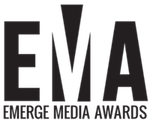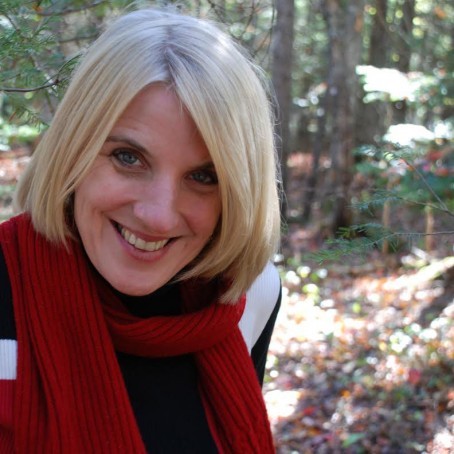First Year Curriculum
Gain a deeper understanding with a well-rounded mix of humanities and journalism courses
In your first year as a journalism student, you take Foundations of Journalism I and II. These courses offer an examination of the news media’s important role in democratic society, building on a strong grounding in the humanities you get in the Foundation Year Program. This pairing is both theoretical and practical—you learn how to read, listen to and watch the news critically. It gives you the historical and contemporary context you need to focus on specific topics in upper years and later in your career.
Explore courses
Required Courses
-
Foundation Year Program (4-Credit)–Arts
-
KING 1001/KING 1002
Fall
Winter
-
Lecture: MWRF 935-1125
Tutorial: MWRF 1135-1225 or
Tutorial: MWRF 1235-1325 or
Tutorial: MWRF 1335-1425
-
Foundations of Journalism I
-
JOUR 1002.03
Fall
-
Alumni Hall
Lecture (Section 1)*: T 0935-1135 & T 1335-1425 Tutorial (Section 1): T 1435-1525
Lecture (Section 2)*: T 0935-1125 & R 0935-1025 Tutorial (Section 2): R 1035-1125
-
Foundations of Journalism II
-
JOUR 1003.03
Winter
-
Alumni Hall
Lecture (Section 1)*: T 0935-1135 & T 1335-1425 Tutorial (Section 1): T 1435-1525
Lecture (Section 2)*: T 0935-1125 & R 0935-1025 Tutorial (Section 2): R 1035-1125
Second and Third Year
Work on the craft of reporting for the public
In upper years, you begin reporting for the public.
You improve your listening, interviewing, reporting and multimedia skills as you take an increasing number of journalism courses from King’s award-winning journalism professors.
You pair your core journalism classes with electives or another degree concentration.
In addition to the courses listed below, you will take 18 credit hours in arts or science electives (as approved) in second year, and 18 credit hours in arts or science electives (as approved) in third year.
The faculty offers a wide range of journalism electives from Documentary Journalism and Opinion Writing, to Feature Writing and Sports Journalism, and more.
Some electives can be taken in second year.
Not all electives are offered every year.
Explore courses
Second Year - Required Courses
-
Introduction to Reporting
-
JOUR 2700.03
Fall
-
Computer Lab 1
M 1435-1725 OR
W 1435-1725
-
Intermediate Reporting
-
JOUR 2701.03
Winter
-
Computer Lab 1
W 1135-1425
-
Introduction to Visual Storytelling
-
JOUR 2702.03
Fall
-
Arts & Administration Building - Computer Lab 1
R 1435-1725
-
Indigenous Peoples and Media
-
JOUR 2704.03
Winter
-
KTS Lecture Hall
F 0935-1125
Third Year - Required Courses
-
Advanced Reporting 1
-
JOUR 3004.03
Fall
-
Arts & Administration Building - Computer Lab 1
T 1505-1725
-
Advanced Reporting 2
-
JOUR 3005.03
Winter
-
Classroom 3
F 1435-1725
-
Ethics & Law for Journalists
-
JOUR 3339.03
Winter
-
KTS Lecture Hall
T 1835-2025
Third Year - Pick two of the following electives
-
Fake News: Journalism Verification Techniques
-
JOUR 2006.03
Fall
Winter
-
ComLab1
Fall: R 1835-2025 (Staff)
Winter: R 1435-1625 (Tailleur)
-
Science in the Media
-
HSTC 2400.03/JOUR 2400.03
Winter
-
Online/Asynchronous
-
History of Communication Technology
-
HSTC 2401.03/JOUR 2401.03
Winter
-
KTS Lecture Hall
M 1745-2035
-
Introduction to Podcasting
-
JOUR 3002.03
Fall
-
Seminar 2
R 1635-1825
-
Creative Nonfiction
-
JOUR 3440.03/CRWR 3440.03
Fall
-
Seminar 2
W 1735-1925
-
Sportscasting 101
-
JOUR 3661.03
Fall
-
Classroom 1
W 1835-2025
-
Advanced Photojournalism
-
JOUR 3664.03
Fall
-
Archibald Room
T 1835-2025
-
Opinion Writing
-
JOUR 3670.03
Fall
-
Vroom Room
R 1835-2025
Fourth Year
Become industry ready through projects, workshops and internships
In your final year, you complete an honours project and two workshops, typically chosen from News (required)/Audio/Video/Creative Nonfiction, and one workshop chosen from Investigative/Magazine/Audio Documentary/Video Documentary. Before graduating, you complete an internship at a media organization where you get hands-on, real-world experience.
Explore courses
Required Courses
-
Honours Project
-
JOUR 4002.03
Fall
-
Computer Lab 2
T 0935-1225
R 0935-1155
R 1305-1525
at least one of the following two courses
and two workshops from below:
The Signal
Produce award-winning work

The Signal is the School of Journalism, Writing & Publishing’s media outlet—the hub for your news stories, videos and current affairs podcasts.
In recent years, students have covered a murder trial from start to finish and reported on important moments in the city’s history. Student work published on The Signal regularly wins regional and national awards including Atlantic Journalism Awards, Emerge Media Awards and Canadian Online Publishing Awards.

Gold Award
Best Publication (Academic)
Canadian Online Publishing Awards 2018
The Signal

1st Place
Audio Storytelling
Emerge Media Awards 2018
What if the Halifax Explosion never happened?
JOURNALISM INTERNSHIPS AND ADDITIONAL INFORMATION
Get a foot in the door
In fourth year, you’ll do a month-long internship at an approved journalism outlet before graduation. Students have worked for newsrooms such as the Canadian Press, CBC, the Globe and Mail, National Post, Elle Magazine and Sportsnet, and also at smaller outlets such as alt-weeklies and video production houses.
Most students complete internships in Canada, but students have also completed internships in New York, Chile and Beirut.
Additional Requirements
Students are required to complete at least three credit hours in Canadian history or Canadian political institutions. This requirement may be satisfied by a 3 credit hour course from History, Political Science, Indigenous Studies or Canadian Studies courses. This is to be taken as one of the Arts & Science electives in either second or third year. Students who can demonstrate that they have an adequate knowledge of Canadian history or political institutions may be excused from this requirement with permission of the Director of Journalism, provided they propose a coherent alternative academic program of study.


